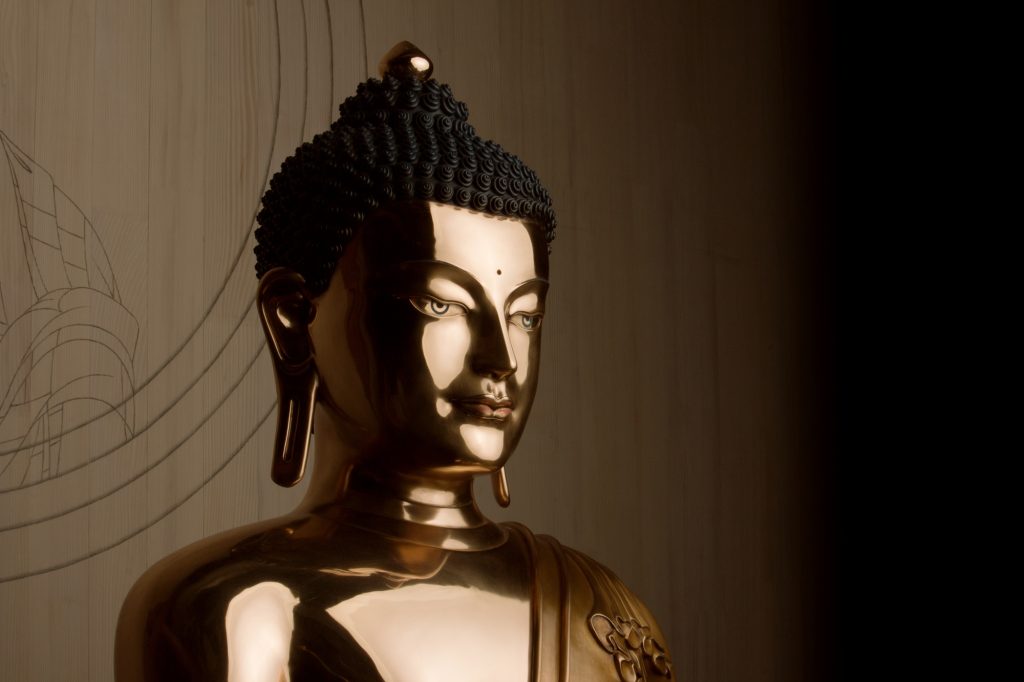
The ultimate goal of Buddhism is known as enlightenment: a state of lasting, unconditioned happiness in which all disturbing emotions and dualistic concepts have been purified, and the full potential of body, speech and mind has come to fruition.
Born as a prince 2,600 years ago in an area that today is in southern Nepal, the Buddha came to realise that conditioned experiences could not provide lasting happiness or protection from suffering. After a long spiritual search, in deep meditation he realised the nature of mind and achieved enlightenment. This state expresses itself as fearlessness, spontaneous joy and active compassion. For the rest of his life, the Buddha taught anyone who asked how they could reach the same state.
The term in Sanskrit that the Buddha gave to his teachings is “Dharma”, which can be translated as “The Way Things Are”. Buddhism thus points to lasting values in a world of impermanence and offers a practical path to realise the true nature of mind and phenomena.
“Happiness and joy do not depend on outer conditions, which change constantly, but on the experiencer of all phenomena — mind itself.” – Lama Ole Nydahl
